 W
WErkki Aaltonen was a Finnish composer.
 W
WLorenz Nikolai Achté was a Finnish opera singer, composer, conductor and music teacher. He was born in Pori, and was one of the Finnish Opera's first artists, together with his wife Emmy Achté. He established a cantor-organist school, Helsinki Church Music School, in Helsinki in 1882.
 W
WOlli Ahvenlahti is a Finnish pianist, composer and conductor. He is of Russian descent.
 W
WPekka Airaksinen was a Finnish composer of electronic music.
 W
WErik Valdemar Bergman was a composer of classical music from Finland.
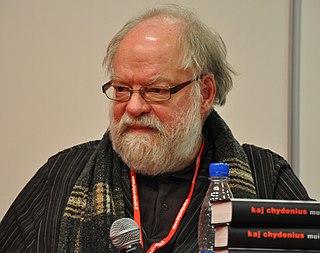 W
WKaj Oskar Chydenius is a Finnish composer, probably best known for his left-wing political songs interpreted by various artists.
 W
WElmer Rafael Diktonius was a Finnish poet and composer, who wrote in both Swedish and in Finnish. Mainly he lived in Tuomistonoja of the Röykkä village.
 W
WKarl Emil Moritz Genetz was a Finnish composer of patriotic choral works.
 W
WGeorge de Godzinsky was a Russian-Finnish composer and conductor. Godzinsky is known from his Schlager music although he composed music for movies and operettas.
 W
WEero Olavi Hämeenniemi is a Finnish composer, musician and writer. He is a docent and professor at the University of the Arts Helsinki.
 W
WAnn-Elise Hannikainen was a Finnish composer. She was born in Hanko, Finland, the daughter of Heikki and Marianne Hannikainen. She studied music in Finland at the Sibelius Academy with Einar Englund for composition and Tapani Valsta for piano. In 1972, she moved to Spain, where she studied composition with Ernesto Halffter Escriche at the Academia Moderne de Musica.
 W
WToivo Ilmari Hannikainen was a Finnish composer.
 W
WPekka Juhani "P. J." Hannikainen was a Finnish composer and the head of the musical branch of the prominent Hannikainen family. His uncle was the writer and journalist Pietari Hannikainen.
 W
WTeppo Hauta-Aho is a Finnish double bassist and composer.
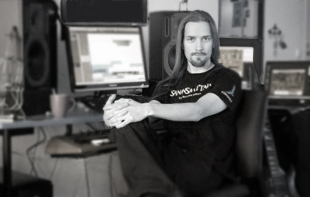 W
WHannu Honkonen is a Finnish musician, composer and producer. His main focus is on Film, TV and other media related audio productions. Honkonen graduated from Jyväskylä Educational Consortium's audio-visual education program in 2005. After this he moved to full-time film and TV composer. He composes music that can be recognized from its usage of modern computer technology with classical instruments.
 W
WEdvard Armas Järnefelt, was a Finnish conductor and composer, who achieved some minor success with his orchestral works Berceuse and Praeludium. He spent much of his conducting career at the Royal Swedish Opera in Stockholm, Sweden.
 W
WKonsta Viljami Jylhä was a folk-virtuoso who, in Finnish fiddling, made the traditional pelimanni-style folk music a Finnish cultural phenomenon of wider currency, bringing his natural genius and traditional style to a burgeoning nationwide television audience, thus laying the foundation for a rich and popular traditional music scene in Finland.
 W
WToivo Pietari Johannes Kärki was a Finnish composer, musician, music producer and arranger. He is especially remembered for his collaboration with Reino Helismaa.
 W
WJohan Emil Kauppi was a Finnish composer. His teachers included Jean Sibelius.
 W
WYrjö Henrik Kilpinen was a Finnish composer. He was born in Helsinki, and in 1907 he started his studies in the Helsingin Musiikkiopisto. In 1910 Kilpinen moved to Vienna to continue his studies and from 1913 to 1914 he studied in Berlin. He travelled extensively in Scandinavia and central Europe, especially Germany. He became an honorary professor in 1942 and was elected to the Finnish Academy in 1948.
 W
WKim Kuusi is a Finnish composer best known for his advertising jingles.
 W
WIlkka Taneli Kuusisto is a Finnish composer of popular opera and father of Jaakko Kuusisto and Pekka Kuusisto. He was born in Helsinki, and was the general manager of the Finnish National Opera between 1984 and 1992.
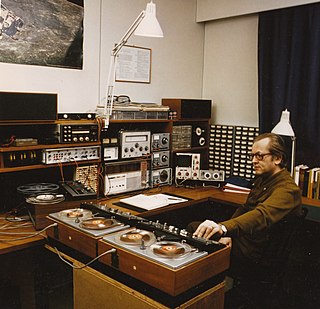 W
WOsmo Uolevi Lindeman was a Finnish composer and music pedagogue.
 W
WJukka Tapio Linkola is a Finnish jazz pianist and classical composer. He has composed music for the Finnish National Opera and led several jazz Big Bands. In addition he has won two Jussi awards for his film music, which another came from the 1988 film The Glory and Misery of Human Life. His euphonium concerto is considered a standard in the repertoire.
 W
WEugen Malmstén was a Finnish musician, singer, orchestra conductor, composer, lyricist and actor. He was the brother of Georg Malmstén, and was of Russian descent through his mother, Eugenie Petroff.
 W
WGeorg Malmstén was a Finnish singer, musician, composer, orchestra conductor and actor. He was one of the most prolific entertainers in Finland of his time, producing over 800 records in numerous genres. In late 1930s, owning a record company, he made about half of his releases under the pseudonym Matti Reima. He was the oldest of three children of a Swedish-speaking family, with Russian ancestry through his mother, Eugenie Petroff, and brother of singer and bandleader Eugen Malmstén.
 W
WTauno Olavi Marttinen was a Finnish composer of contemporary classical music.
 W
WOlivia Bouyssou Merilahti is a Finnish-French singer and composer living in France. Her work has been compared to that of Björk, whom she cites as a major influence. Merilahti was born to a French father and a Finnish mother. She primarily uses English in music, which she learned at an early age.Finnish is my intimate language; I speak Finnish with my mum and I've been living in France for most of my life, so it's been my secret language. My secret weapon somehow. So these different languages play different roles in my life, and English has always been the musical one.
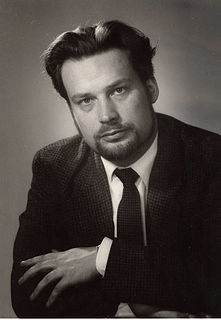 W
WUsko Aatos Meriläinen was a Finnish composer. He was born in Tampere.
 W
WIda Georgina Moberg was a Finnish composer and conductor. She was born in Helsinki, and took piano and singing lessons as a child.
 W
WMartti Eliel Pokela was a Finnish folk musician and composer. Pokela was an expert with the kantele, Finland's national musical instrument.
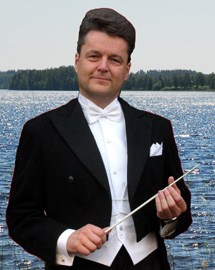 W
WTapani Puranen is a composer, arranger, orchestra conductor, recording engineer and producer. Lives in Lempäälä, Finland.
 W
WVäinö Eerikki Raitio was part of the small group of composers who appeared in the Finnish art music scene in the 1920s with a new cosmopolitan music style, very different from the dominant conservative National Romanticism.
 W
WJohn Filip von Schantz, was a Finnish composer and musician. He left Helsinki in 1855 after being expelled from University of Helsinki, deciding to devote himself to music. The following year he began studies in violin and composition in Stockholm and continued them at Leipzig in Germany in 1857–1860.
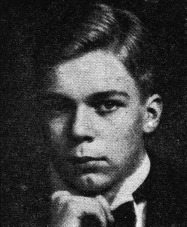 W
WHeikki Theodor Suolahti was a Finnish composer.
 W
WErna Tauro, née Pergament, was a Finnish-Swedish pianist and composer.
 W
WErik Eriksson Tulindberg was the first known Finnish composer of classical music.
 W
WKalervo Tuukkanen was a Finnish composer. He was born in Mikkeli and died in Helsinki. In 1948 he won a silver medal in the art competitions of the Olympic Games for his Karhunpyynti.
 W
WMartin Wegelius was a Finnish composer and musicologist, primarily remembered as the founder, in 1882, of the Helsinki Music Institute, now known as the Sibelius Academy.